From Nostalgia to New Beginnings: The Power of Music in Dementia Care
magine if a single song could unlock a treasure trove of memories—moments of laughter, milestones, and heartfelt emotions. As the early stages of dementia quietly set in, it can be profoundly helpful to know the tunes that once made our loved ones come alive. By asking for their all-time favorite songs, we can build a personalized playlist that may offer comfort, spark recognition, and even soothe anxiety in later stages of the disease.
In today’s fast-changing world, this simple yet forward-thinking idea transforms music from mere background noise into a lifeline. It invites us to think proactively about care and connection, ensuring that the very songs that once defined moments of joy can continue to be a source of solace and cognitive stimulation.
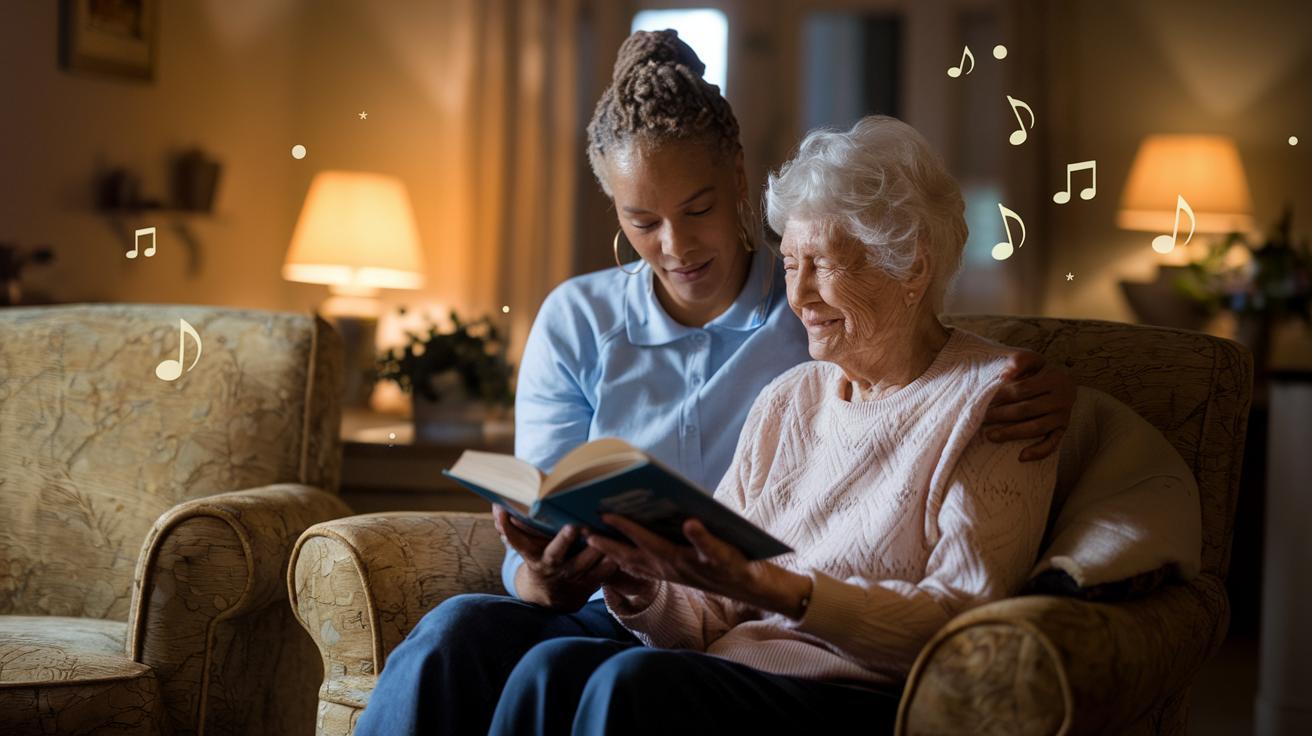
‘LPT: if a friend or a family member gets diagnosed with dementia or alzheimer, in the early stages try to find out what their favorite songs of all time are. In this way you would be able to create a playlist for them that could be of great benefit in the later stages of the disease.’

Music therapy is much more than a pleasant distraction—it’s a clinically supported intervention that can help improve the lives of those with dementia. Research has shown that familiar music can evoke autobiographical memories and stimulate positive emotions, even when other forms of communication become challenging.
In fact, studies from institutions like the Mayo Clinic confirm that many individuals with Alzheimer’s or dementia can recall and enjoy songs from their past, which can help reduce agitation and improve mood.
Consider the proactive advice offered in the Reddit post: by discovering a loved one’s favorite songs early on, caregivers can create a tailored musical playlist that might later serve as a bridge to lost memories. This personalized approach taps into what neuroscientist Daniel Levitin describes as a process where “playing an instrument is neuroprotective, because you’re creating new neural pathways every time you engage with music.”
Levitin’s perspective reinforces the idea that active engagement with music—whether by listening or participating—can help preserve cognitive function over time. When familiar melodies echo from a cherished past, they can momentarily restore the sense of identity and calm that often fades in dementia.
Moreover, such moments of musical recognition are not only uplifting for the patient; they also offer caregivers a glimpse into the person they once knew, thereby reinforcing the emotional bond during a challenging journey.
Forward-thinking research is now exploring digital music therapies where artificial intelligence tailors playlists to individual preferences and even tracks biometric responses. Imagine a future where a caregiver’s smartphone or smart speaker automatically adjusts the music to match the patient’s mood or stress level, deepening the therapeutic impact.
Such innovations promise to enhance the non-pharmacological toolkit available for dementia care, potentially reducing the reliance on medications and the side effects they often bring.
The growing body of evidence supporting music therapy underscores its potential in reducing behavioral symptoms—like anxiety, depression, and agitation—and in fostering moments of joy and connection. By integrating personalized music into daily routines, caregivers not only help maintain cognitive stimulation but also create an environment where cherished memories can resurface, albeit fleetingly, offering comfort and continuity.
Here’s what Redditors had to say:
Here are some hot takes from the Reddit community—candid, humorous, and surprisingly insightful:
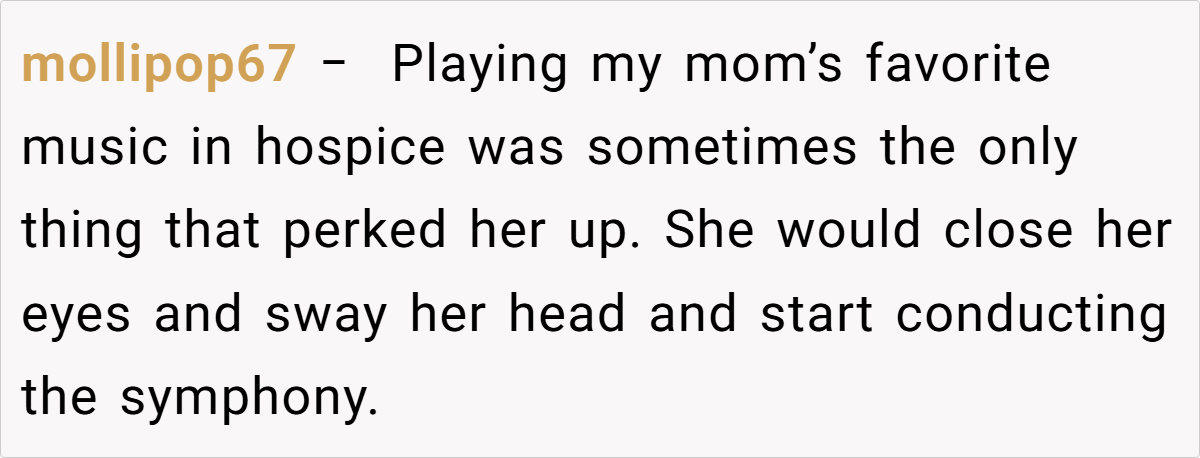
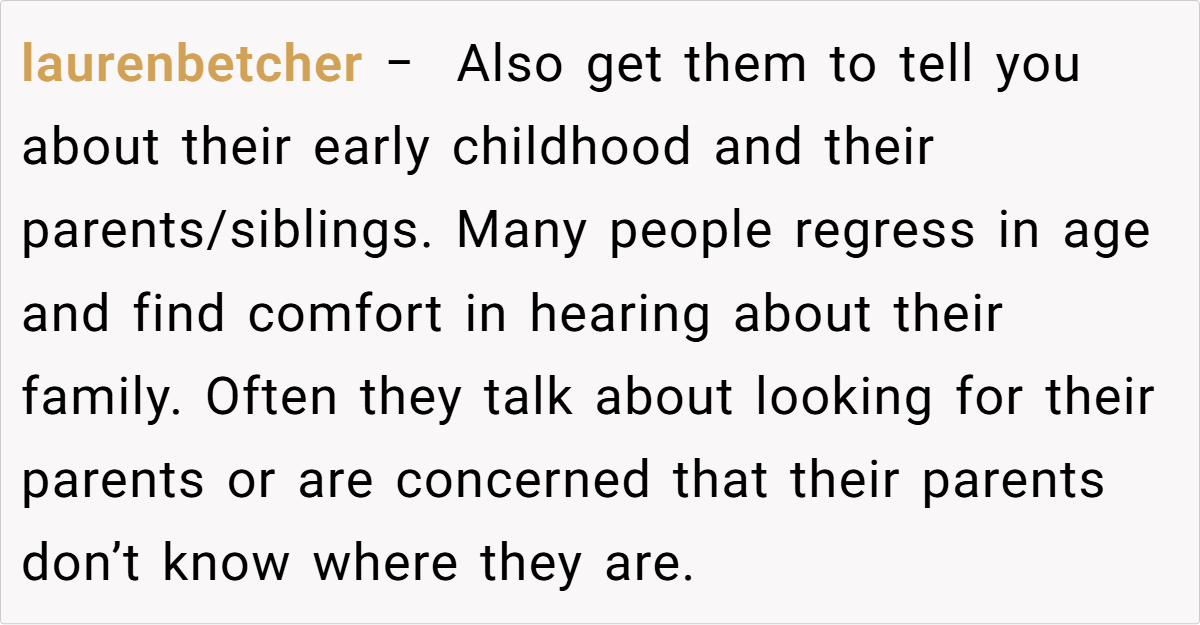
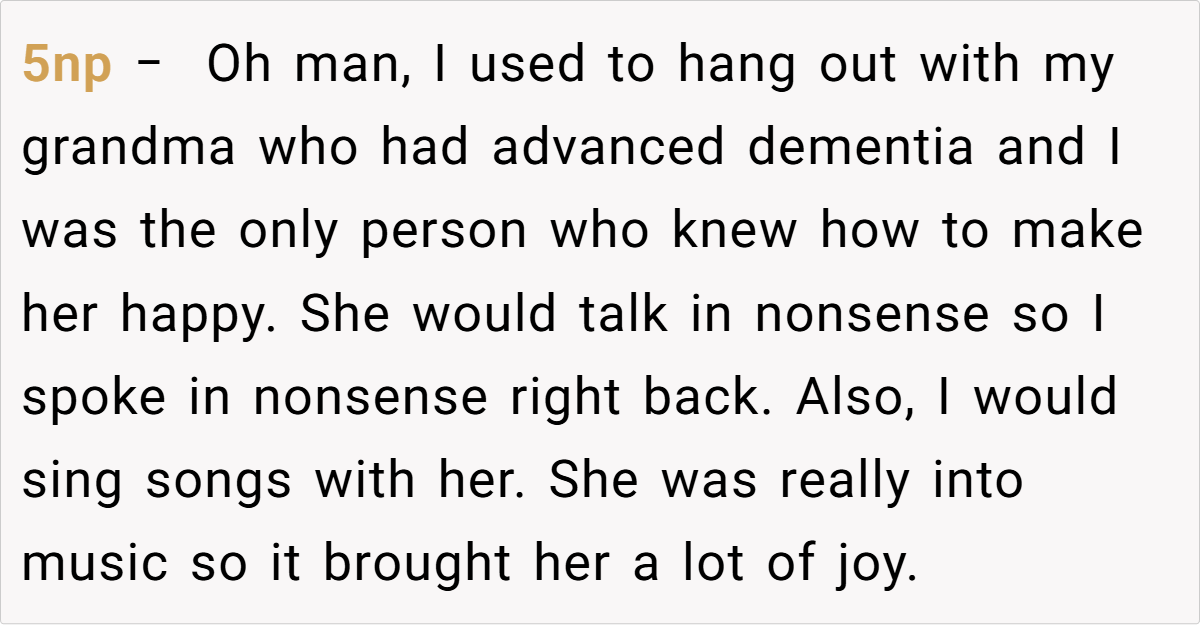
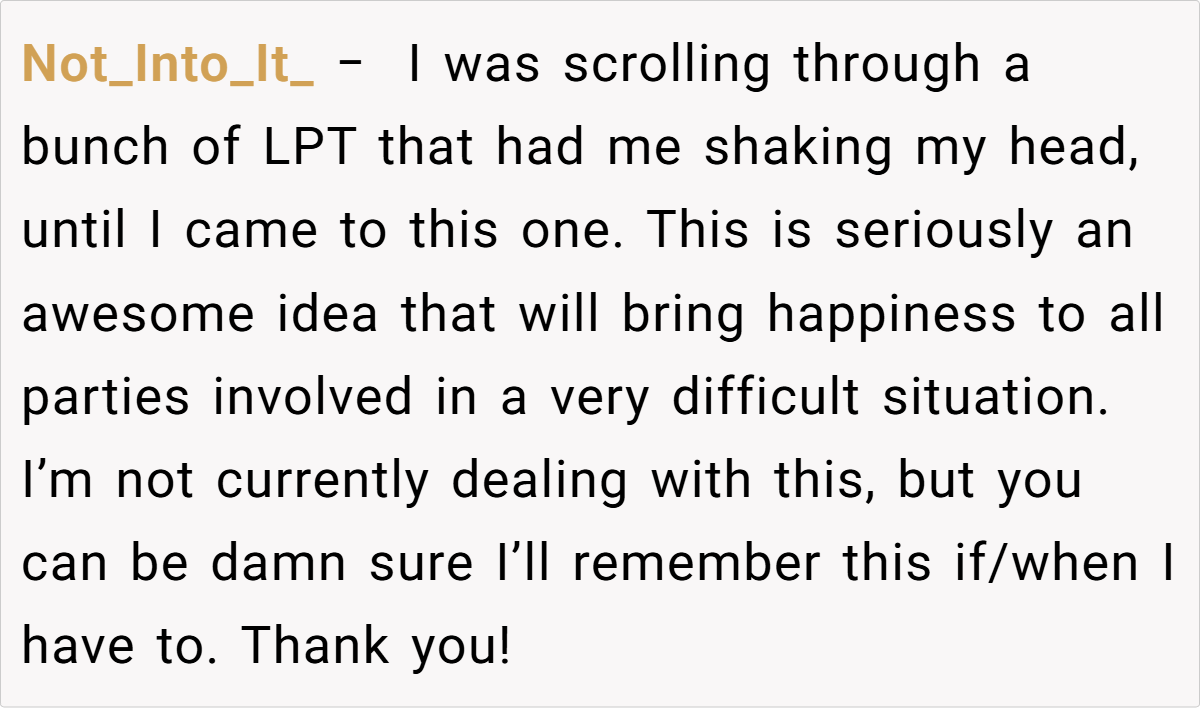
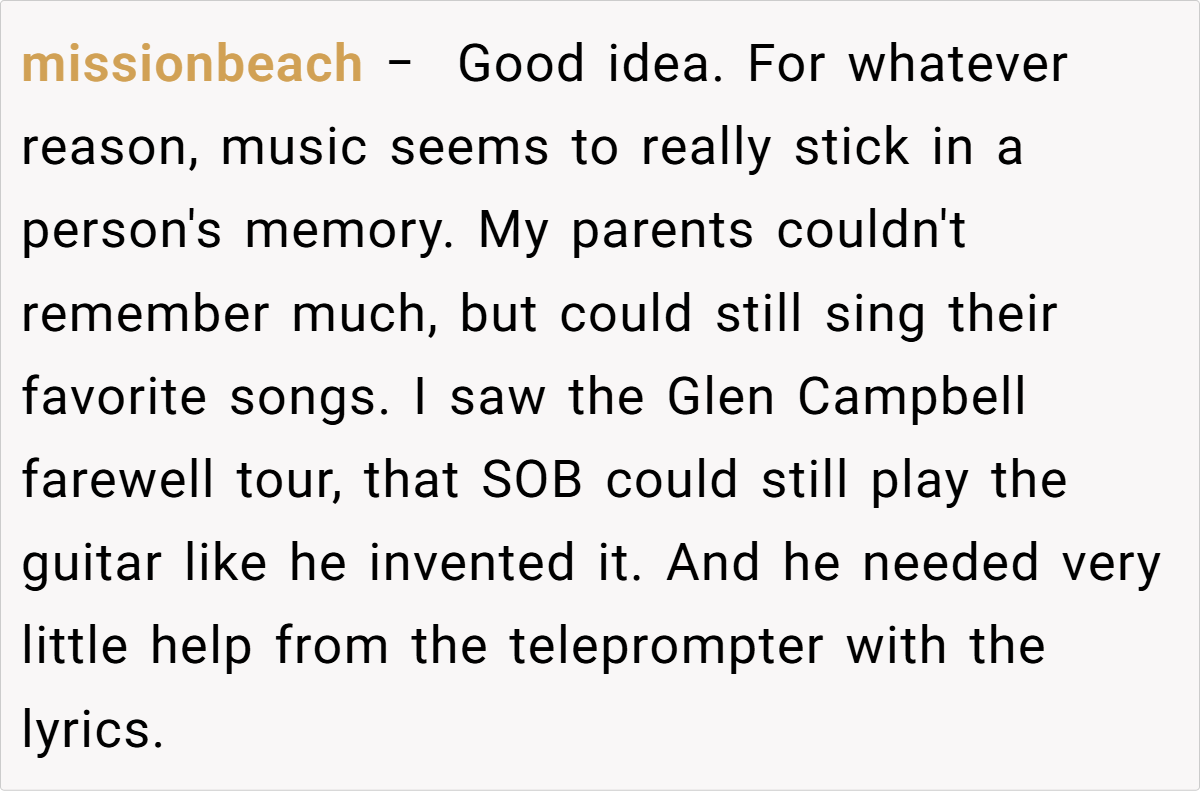

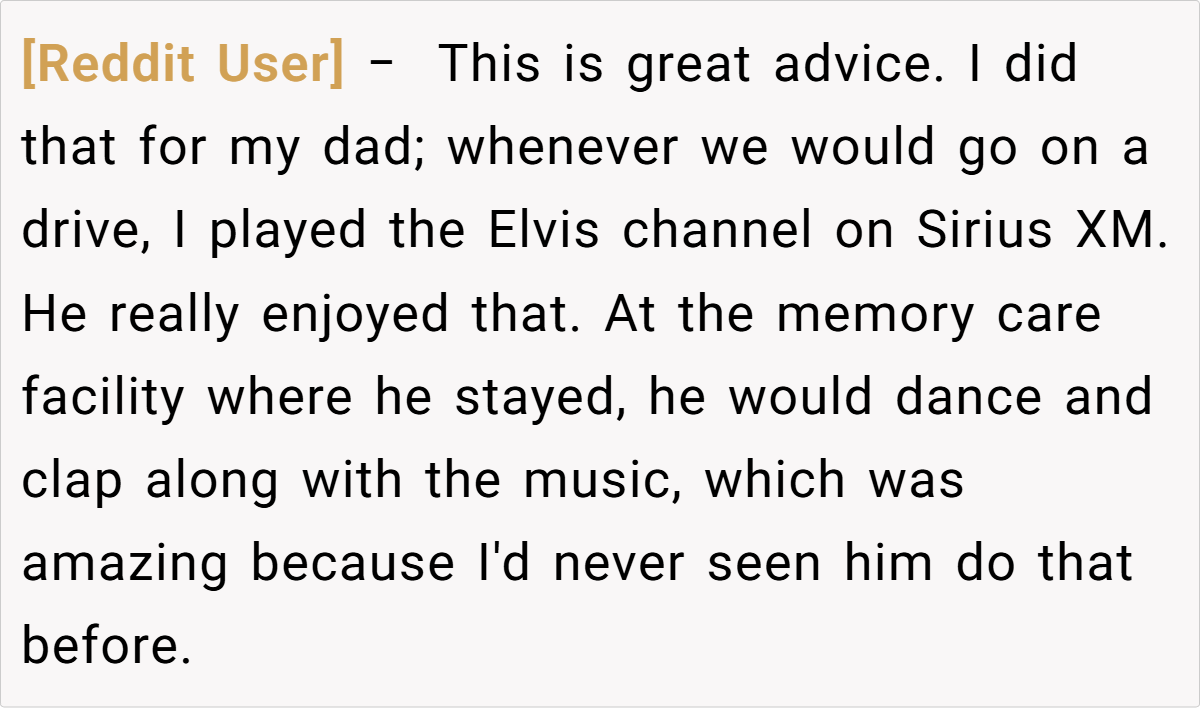
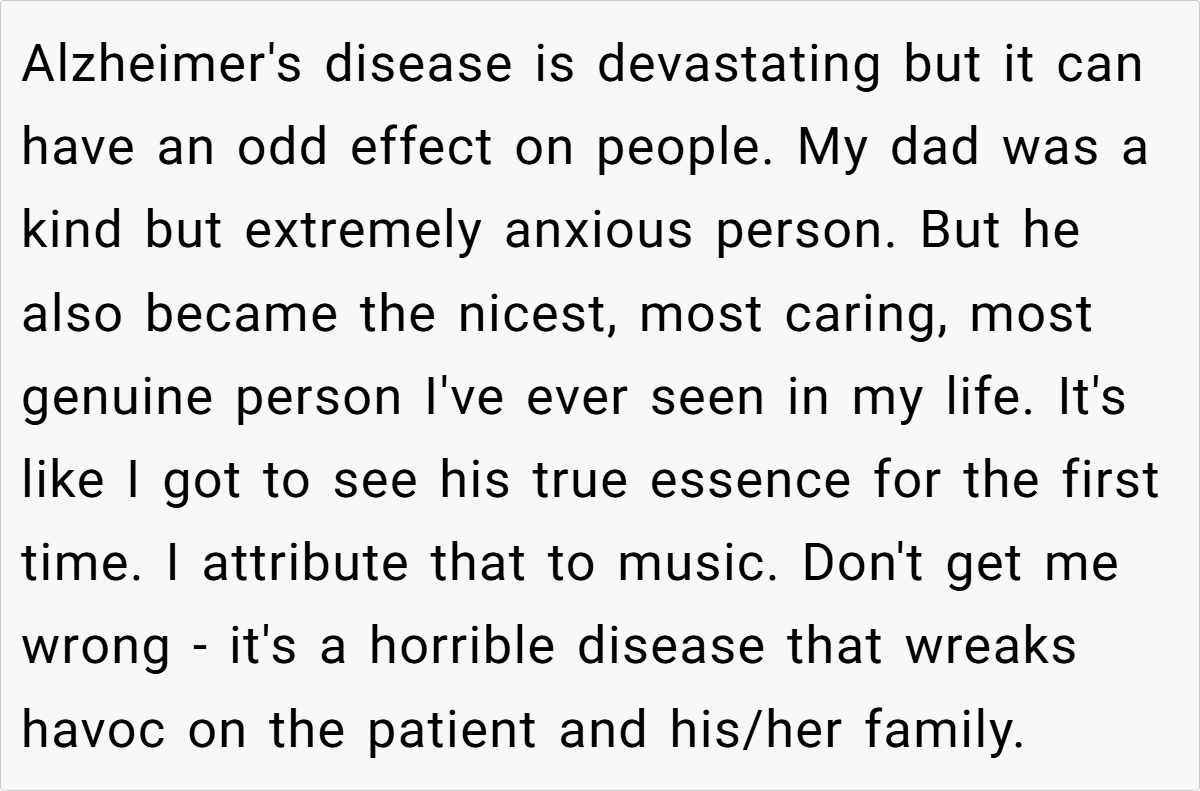
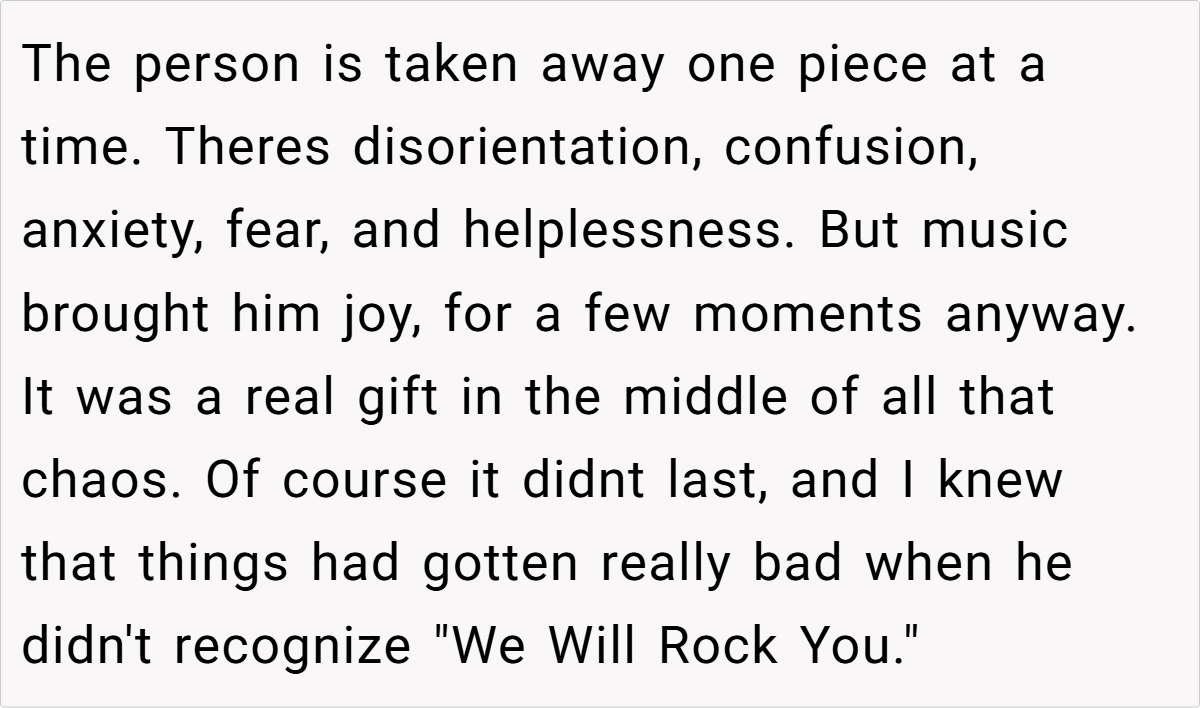
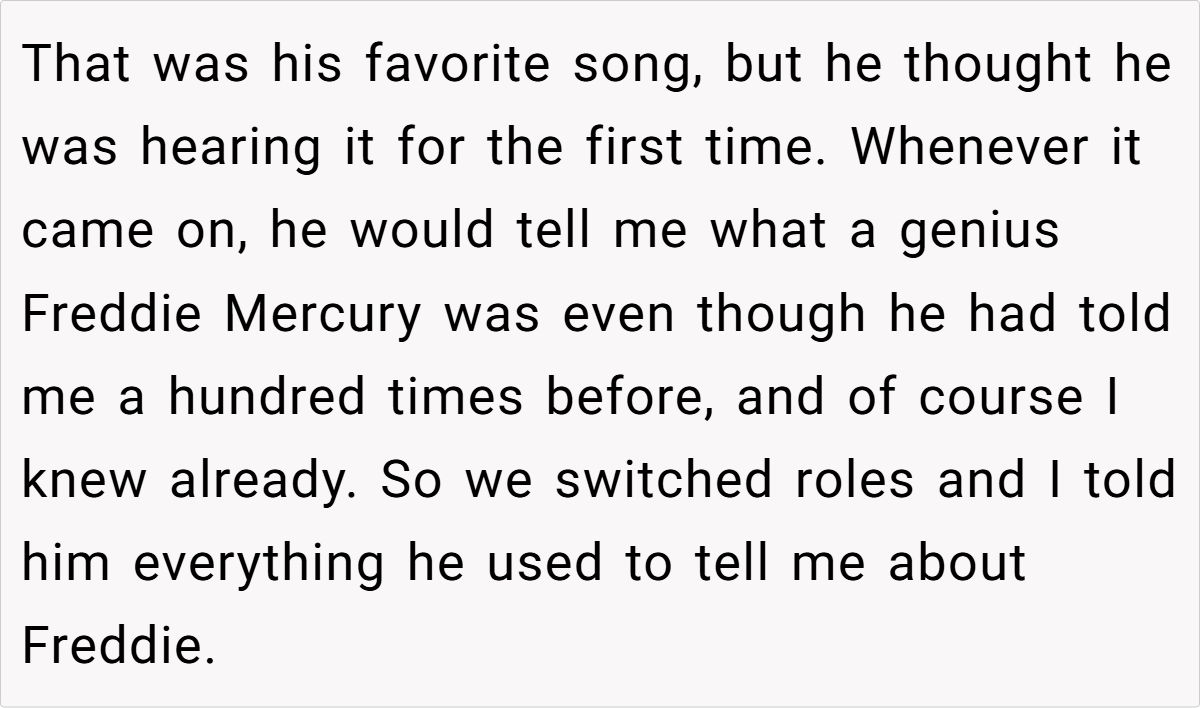
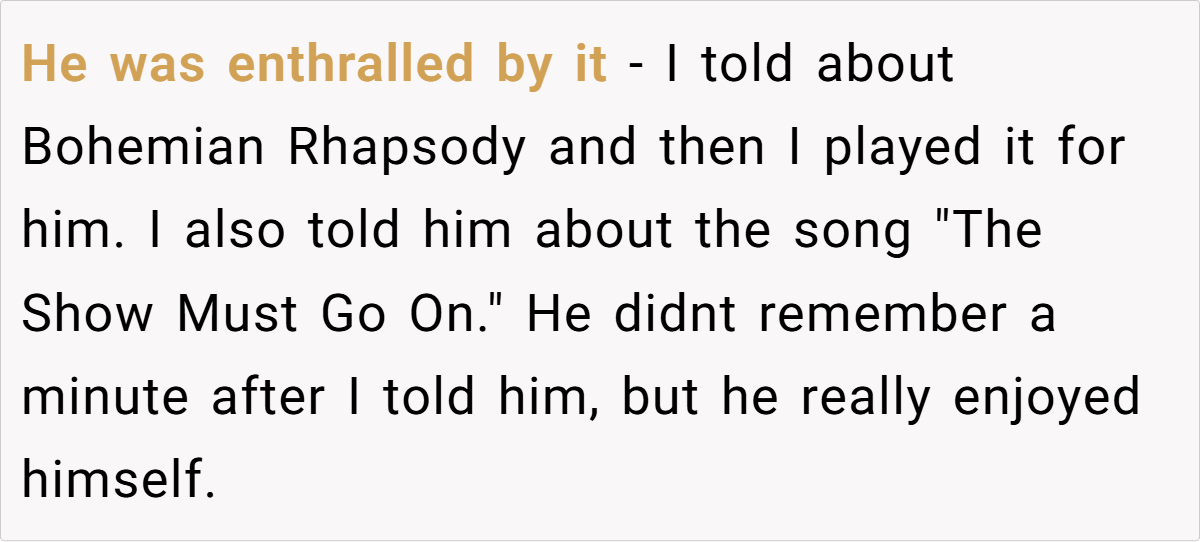


In conclusion, the proactive use of personalized music playlists can be a gentle yet powerful tool in dementia care. It exemplifies how a simple act of gathering favorite songs might offer more than nostalgia—it may provide a beacon of familiarity and comfort as memory fades. We’d love to hear your thoughts: What would you do if a loved one was diagnosed with dementia? Have you ever experienced a moment when a song brought back a lost memory? Share your stories and insights in the comments below.

